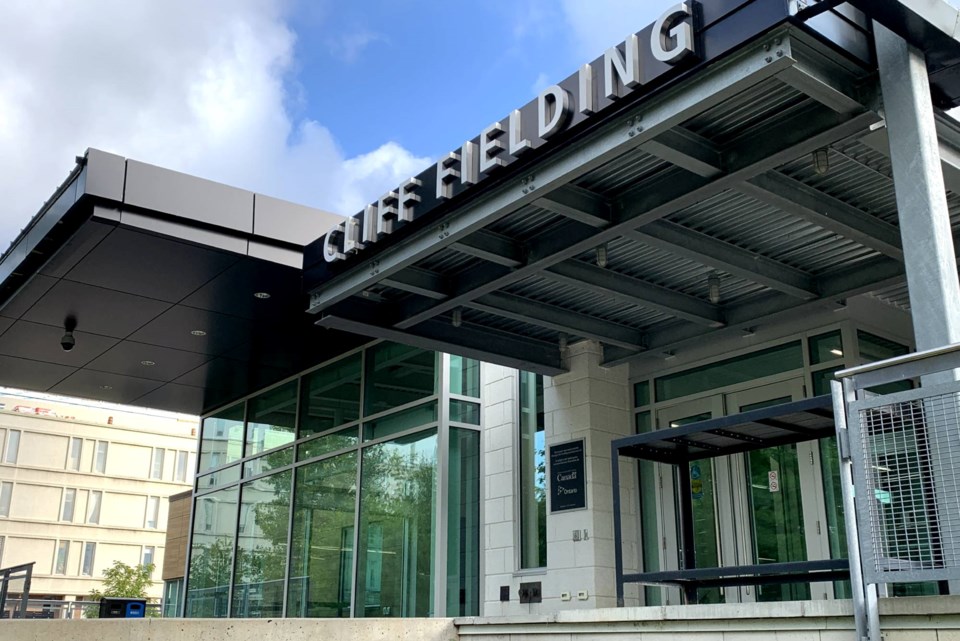A $2.1-million investment in equipment at Laurentian University is poised to have a “transformative” impact on the learning experiences and job prospects for students studying in STEM fields.
In July, the Sudbury school announced it had received just under $1 million from the province’s Training Equipment and Renewal Fund, with the remaining investment being covered by Laurentian, along with in-kind contributions from vendors.
Eric Gauthier, director of Laurentian’s School of Natural Sciences, said lab equipment related to STEM programs — science, technology, engineering and math — typically lasts for many years when cared for properly, but eventually it becomes obsolete.
It’s expensive to replace and, following Laurentian’s path through insolvency, the school is carefully watching its financials. So the funding comes at just the right time.
“It was high time for us to replace equipment,” Gauthier said. “So this funding will do a lot to allow us to get brand-new pieces of equipment for our teaching labs.”
Some existing equipment is more than 20 years old — still operating on the Windows XP system, Gauthier noted. It will be now replaced with contemporary versions, and in some cases, Laurentian will acquire new equipment for the very first time that will “reflect evolving technology.”
Central to the investment is the molecular analysis and characterization core — a mouthful for the layman. It’s basically a fancy term for a number of pieces of equipment that help scientists analyze molecules, Gauthier said.
As part of this, Laurentian will get a new nuclear magnetic resonance instrument, which Gauthier describes as “basically an MRI, but for molecules,” to replace an old one.
Used primarily in the fields of chemistry and biochemistry, the machine allows students to identify substances, he noted.
Laurentian will also get a capillary electrophoresis unit, typically used by forensic students to sequence DNA, which can be used to identify suspects in a crime.
“So we’ll have that piece of equipment, which we don’t right now,” Gauthier said. “It’s going to be great for our forensic students, at the undergrad level, but also at the master’s level.”
He noted that some of the funding will be used to purchase service contracts for the more sophisticated pieces of equipment, which require expert maintenance to keep them working properly.
In addition to the molecular analysis equipment, Laurentian will be establishing a virtual reality (VR) lab, which will have two components.
Of the first, Laurentian will acquire technology to create immersive artificial intelligence (AI) experiences, and 15 headsets will be available for student use.
“So if you have a smaller class, you’ll be able to use that immersive AI to make demonstrations, for example, or to teach students,” Gauthier said.
In one example, he noted, a colleague has created a demonstration to teach students how to tinker with molecules that make up certain drugs so they work better in patients and cause fewer side effects.
The second component of the VR lab is designed for larger audiences. Five projectors will project images across three walls for a broader virtual experience. Though it’s not as immersive, this technology has its own benefits, Gauthier said.
“Let's say you project a crime scene for forensics,” he noted. “You can make it so that you can make gestures on the wall and you'll have text appearing to explain a specific concept and people will see that.”
Rounding out the trio of newly funded projects is a multimedia lab, which will include recording equipment and editing software to enable science communication students to create content.
Currently, the sci-comm program is based at the nearby Vale Living with Lakes Centre, but this shift will give students a creative space right on campus.
“Laurentian has the only graduate-level program in science communication in the country,” Gauthier said. “So it's important for us to try and use that program as much as we can. It's a precious resource.”
The equipment may also be enlisted to create new online microcredential courses.
A good portion of the new equipment will be housed in the Perdue Central Analytical Facility (PCAF), which is situated in the Cliff Fielding Research, Innovation and Engineering Building in the central part of campus.
Established in 2019, the facility was originally intended as a spot for researchers to house their equipment, as well as a resource for off-campus organizations and companies that could pay to use its services.
But then the pandemic happened, and insolvency followed not long after, and Gauthier said plans have changed slightly.
Now it will be a combination research-training facility, and the option remains to open it up to pay-for-service clients as well.
The major benefit of all this new equipment is that it gives students the best hands-on learning experience to ready them for their future careers, Gauthier said.
“That kind of investment is, in my view, transformative,” he said. “We’ll be able to get the equipment that the student needs to make that transition either to graduate studies or to a job much easier.”
Prospective students who tour the labs are consistently “flabbergasted” by the quality of Laurentian’s facilities, he said, and it’s his belief that’s one of the school’s top attributes.
In a post-insolvency era, Gauthier said, it’s the kind of leg up Laurentian needs to help it bounce back from a rough few years.
“We're working hard to get back on track, and that's the kind of boost that we need to really show that we're here and we're excited,” Gauthier said.
“We love this institution; we love this place. Students get amazing training here, and we get support from the province, from the university. It's time to get excited again.”
Gauthier said the school is in the process of acquiring the equipment and renovating space to house it, and the full project will be complete by Jan. 1, 2025.
